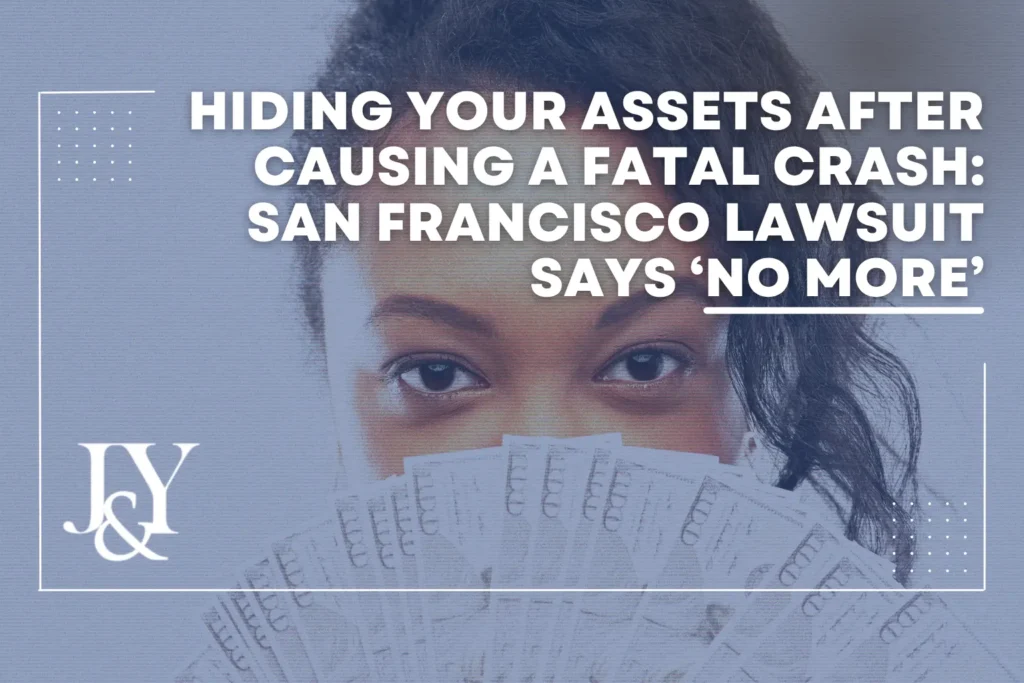Hiding Your Assets After Causing a Fatal Crash: San Francisco Lawsuit Says ‘No More’
What is the lawsuit about in the West Portal crash case?
The family of two parents and their infant who were killed at a San Francisco bus stop in 2024 has just filed a wrongful death lawsuit that goes beyond negligence. They’re accusing the 80-year-old driver who caused the crash of trying to hide her assets in the aftermath. The suit claims she transferred multiple properties out of her name in an attempt to shield them from judgment.
In legal terms, that’s called fraudulent conveyance, and California courts take it seriously.
“You can’t hit a family with a car and then hit ‘transfer’ on your real estate holdings to dodge the consequences,” says J&Y Law attorney Stephen Lockard. “Fraudulent asset transfers aren’t just unethical – they’re legally voidable. And courts will claw those assets right back if someone’s playing games with accountability.”
For a free legal consultation, call (877) 735-7035
What is fraudulent conveyance, and why does it matter?
Fraudulent conveyance happens when someone transfers assets – like homes, cars, or cash – to others for the purpose of avoiding creditors or legal judgments. In the context of a wrongful death case, it’s often used by defendants who fear a large payout and want to appear “broke” in court.
But here’s the truth: if a transfer is made in bad faith, courts can reverse it. Judges can freeze bank accounts, undo property sales, and even issue liens against assets that were moved around in an effort to duck financial responsibility.
“We’ve seen cases where defendants gift property to relatives, sell homes to friends for one dollar, or open secret trusts after a tragedy,” Lockard explains. “It doesn’t work. The legal system has tools to track and recover what victims are owed. And we know how to use them.”

Can families still collect damages if the at-fault party is trying to hide money?
Yes, but it takes a skilled legal team. Here’s how families like the one in the San Francisco crash can still win:
- Filing for a prejudgment writ of attachment to freeze suspect assets
- Using discovery tools to expose transfers and hidden accounts
- Partnering with forensic accountants to follow paper trails
- Asking courts to issue constructive trusts over fraudulently moved property
California’s Uniform Voidable Transactions Act (UVTA) gives courts wide latitude to undo bad-faith transfers – but only if the evidence is clear and the timing lines up with the legal claim.
Click to contact our personal injury lawyers today
Why does this case strike such a chord?
Because it’s not just about money – it’s about justice. A family tragically lost their loved ones. While the law can’t bring them back, it can ensure that the person responsible doesn’t escape the weight of that loss.
“These cases go beyond legal technicalities,” says Lockard. “They’re about moral accountability. When someone’s negligence ends three lives, the bare minimum is to face what’s left. Trying to hide assets after that isn’t just wrong – it’s heartless. And we won’t let it slide.”
Complete a Free Case Evaluation form now
What can other families learn from this?
If your family has lost someone in a crash, and the at-fault party starts moving money or transferring titles, seek legal help immediately. These red flags can undermine your ability to collect. The sooner you act, the stronger your claim will be.
If someone’s trying to run from responsibility, we’ll find them and the assets they think are safe. Justice doesn’t get buried in paperwork.
Call J&Y Law to speak with attorneys who know how to win both in court and behind the scenes.
Call or text (877) 735-7035 or complete a Free Case Evaluation form

